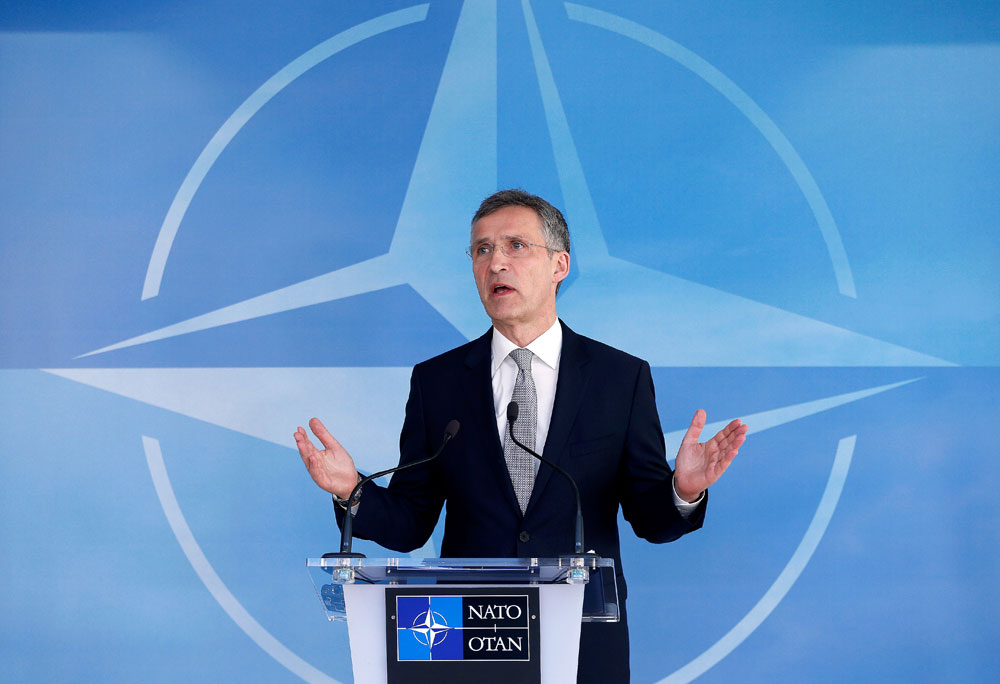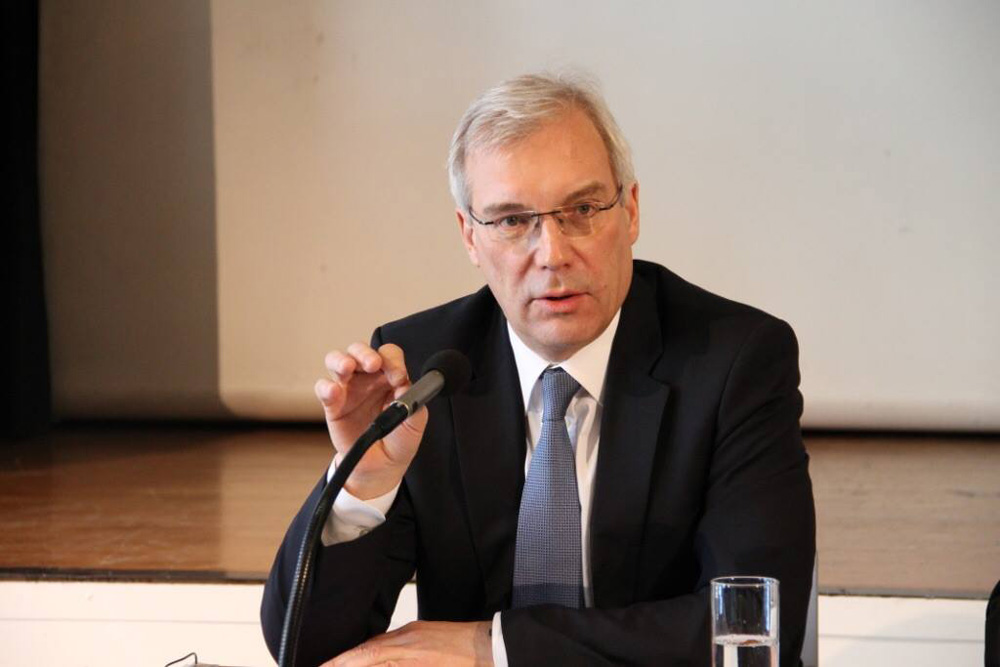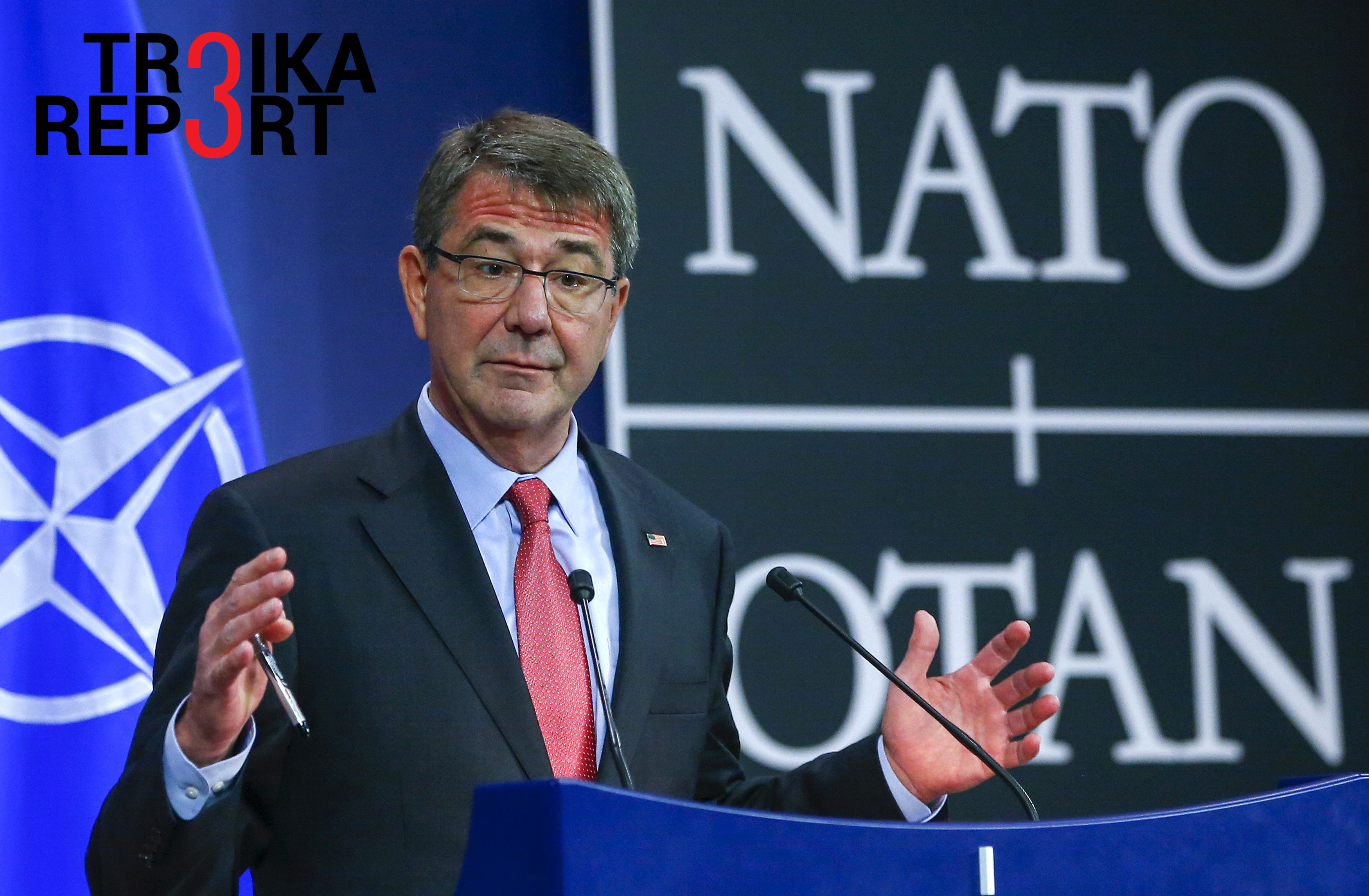NATO revives one of Medvedev’s forgotten ideas

NATO Secretary General Jens Stoltenberg speaks after a NATO-Russia Council at the Alliance's headquarters in Brussels, Belgium.
Reuters"There can be no return to practical cooperation," Jens Stoltenberg, the NATO secretary general, stressed at a press conference on April 20. "NATO and Russia have profound and persistent disagreements. Today's meeting did not change that."
The NATO-Russia Council was paralyzed in 2014 after the change of status of Crimea and issues surrounding this peninsula remain central to the current state of relations between Moscow and the alliance. Nevertheless, talks were resumed on three separate topics.
The first is the process of settlement of the conflict in Eastern Ukraine. The parties unanimously called for the implementation of the Minsk agreements.
The second topic is the strengthening of the coordination of actions to prevent hazardous incidents. The most recent one occurred last week when a Russian Su-24 bomber made a dangerous maneuver over the USS Donald Cook destroyer in the Baltic Sea. Russia, in turn, is concerned about the expansion of a NATO military presence near its borders.
The third issue is Afghanistan. The alliance still maintains a military presence there, while Russia is concerned about the increase in the activity of terrorist groups, including the radical Taliban movement.
The shadow of Medvedev
Stoltenberg stressed twice that NATO was going to revise the Vienna Document by which NATO and Russia had cooperated on security matters since the 1990s. The secretary general did not explain what specific changes might be made to the document.
However, it is clear that the alliance has already started work on a separate document that would change the security structure in Europe. This idea, at least as currently drafted, mimics proposals brought forward in 2008 by then Russian President Dmitry Medvedev following the Russian-Georgian military conflict in South Ossetia.
"Even then, Medvedev said that the Russian authorities were considering NATO's eastward expansion as a threat to their own security," Dmitry Polikanov, a member of the board at the PIR Center, a Moscow-based think tank, told Gazeta.ru. "The Russian president proposed to solve these uncertainties through a new treaty, which would improve the system of collective security in Europe and clarify some ambiguous terms."
In 2009, a draft agreement landed on the desk of the then current NATO secretary general, Anders Fogh Rasmussen, but it did not progress beyond discussions.
Robert Pszczel, the acting director of the NATO Information Office in Moscow agrees that it is time to change the system of European security. According to him, NATO is particularly concerned about Russia's military exercises.
"From a legalistic point of view, the Vienna Document entitles each country not to inform about upcoming exercises, if they are unplanned," Pszczel told Gazeta.ru. "Russia has constantly used this legal opportunity lately and gathers, according to our data, up to 100,000 people for unplanned military exercises."
No spirit
Why did NATO ignore Medvedev's initiative, when relations were not yet at such a low point? Pszczel attributes it to the fact that the Russian project was too ambitious.
"There were questions that this document would impose restrictions on the activities of the alliance," he said. "In addition, the main discussion was going within the OSCE. It is this organization, not NATO, that rejected the Russian proposals."
Alexander Grushko, the head of the Russian delegation and the permanent representative of Russia to NATO, said that the event in itself demonstrated that a project called the "Isolation of Russia" had failed.
"We have gone through all the main issues related to the security situation in Europe," Grushko told the state-owned television channel Russia-1. "This in itself is not bad."
At the same time, he said that Russia itself is not very eager to restore relations with NATO. According to Grushko, Moscow "feels absolutely no discomfort" about the paralyzed NATO-Russia Council, because it cooperates with Western partners in the field of security on a bilateral basis.
According to an official statement by the Russian Foreign Ministry, the country expects that "NATO will be able to muster the political will as well."
First published in Russian in Gazeta.ru
Subscribe to get the hand picked best stories every week
All rights reserved by Rossiyskaya Gazeta.
Subscribe
to our newsletter!
Get the week's best stories straight to your inbox

